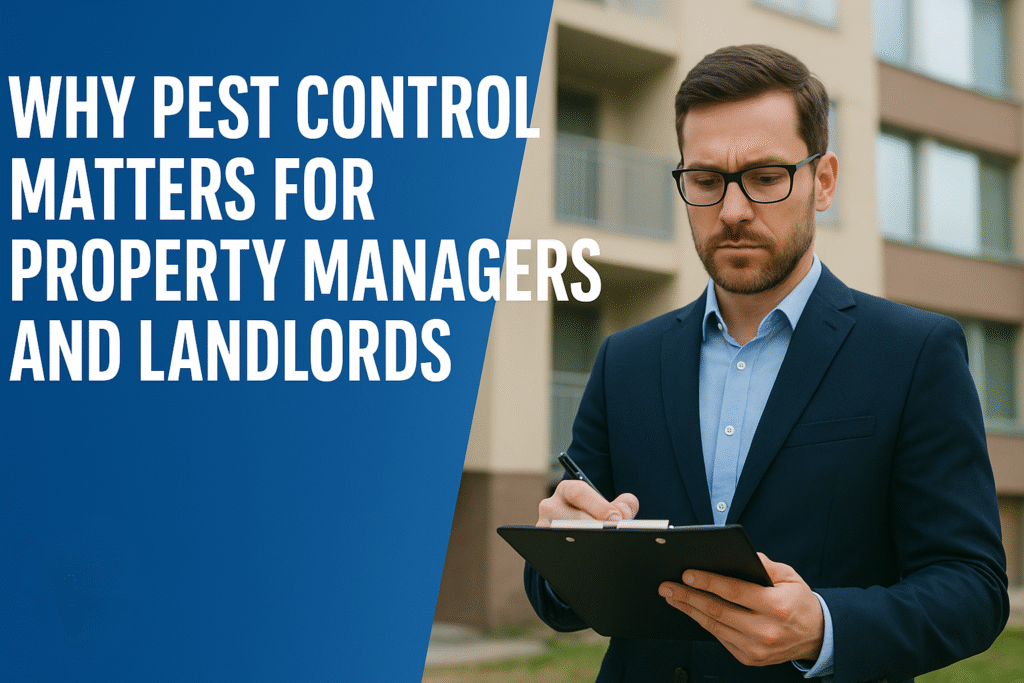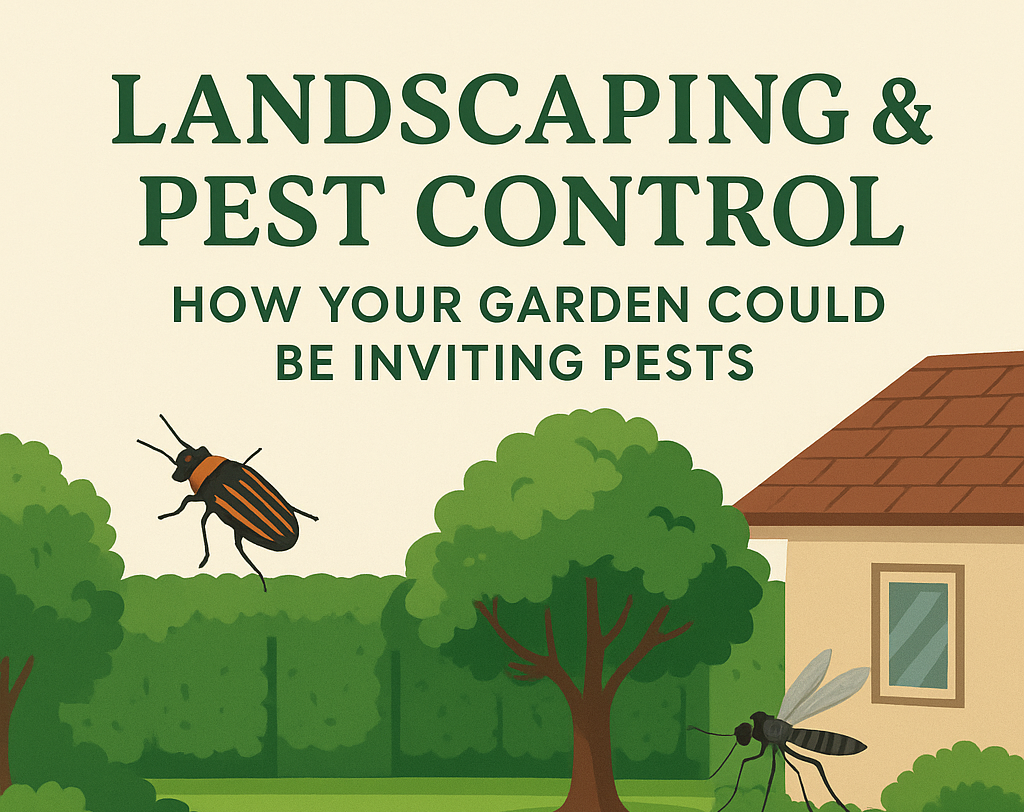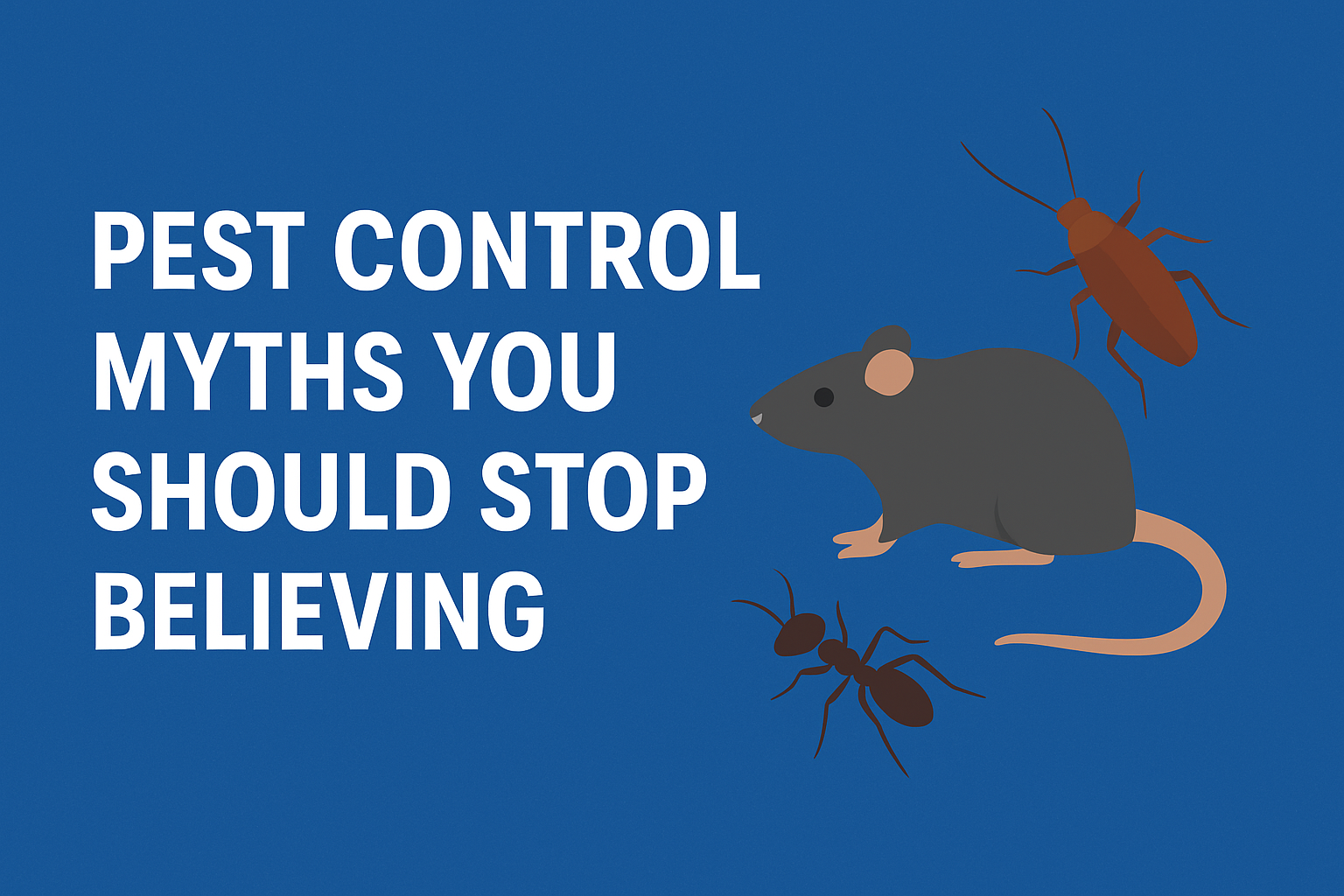Why Pest Control Matters for Property Managers and Landlords
- Pest_Control

Property Managers have the critical responsibility of maintaining not only the physical integrity of a building but also the comfort and safety of its occupants. One often-overlooked aspect of this responsibility is pest control. Whether managing residential complexes, commercial spaces, or mixed-use developments, pests can quickly turn into a major problem—affecting tenant satisfaction, property value, and even legal compliance.
Protecting Property Value
A key priority for property managers and landlords is preserving the value of their investment. Infestations from pests like termites, rodents, or cockroaches can cause extensive structural damage. Termites alone can silently weaken wooden beams and frames, leading to costly repairs. Regular pest control inspections and treatments are not just preventative measures—they are essential maintenance steps that safeguard the long-term integrity and market value of a property.
Enhancing Tenant Satisfaction and Retention
Tenants expect a safe, clean, and comfortable living or working environment. The presence of pests is one of the quickest ways to damage that trust. If tenants experience recurring issues with pests, they are more likely to break leases, leave negative reviews, or refuse to renew. By proactively addressing pest control, property managers can boost tenant satisfaction, increase lease renewals, and foster long-term relationships with occupants.
Meeting Legal and Health Requirements
In many regions, landlords and property managers have a legal duty to maintain habitable living conditions. This includes keeping the premises free from pest infestations. Failure to do so could result in fines, legal disputes, or even forced closures. Beyond legal implications, pests can carry harmful bacteria and allergens that affect tenant health. A robust pest control plan demonstrates compliance with regulations and a commitment to public health.
Reducing Emergency Costs
Waiting until pests become visible before taking action is a costly mistake. Emergency pest removal often involves higher service fees and additional repairs for damage caused during the infestation. Implementing a scheduled pest management program allows property managers to detect early signs of problems—such as droppings, nests, or gnaw marks—before they escalate into expensive emergencies.
Building a Strong Reputation
In the digital age, reputation is everything. Prospective tenants often research a property online before deciding to move in. Negative online reviews mentioning pest problems can deter potential renters for years. On the other hand, a track record of cleanliness, safety, and proactive property maintenance can become a unique selling point. Property managers who prioritize pest control send a clear message: they care about quality and tenant wellbeing.
Practical Pest Control Strategies for Property Managers
- Regular Inspections – Schedule professional pest inspections at least quarterly to identify vulnerabilities and catch infestations early.
- Seal Entry Points – Ensure windows, doors, and utility openings are properly sealed to prevent pests from entering.
- Educate Tenants – Provide guidance to tenants on proper waste disposal, food storage, and reporting procedures for pest sightings.
- Maintain Landscaping – Trim vegetation away from buildings and remove standing water sources to discourage pests like mosquitoes and ants.
- Partner with Professionals – Establish a long-term contract with a trusted pest control service that offers preventive treatments and emergency support.
Sustainability in Pest Management
Modern pest control isn’t just about eliminating unwanted guests—it’s about doing so responsibly. Many property managers are adopting Integrated Pest Management (IPM) strategies that focus on prevention, monitoring, and targeted treatments rather than blanket pesticide applications. This approach reduces environmental impact, minimizes tenant exposure to chemicals, and ensures more sustainable property maintenance.
Preventive Measures for All Pests
For property managers and landlords, pest control is not an optional extra—it’s a fundamental part of property maintenance and tenant care. Proactive pest management protects the building’s structure, supports tenant satisfaction, ensures legal compliance, and safeguards reputation. By investing in regular inspections, preventative measures, and professional partnerships, property managers can prevent small problems from becoming large, expensive headaches.
Conclusion
At Blue Diamond Facilities Management, we understand the unique challenges property managers face when it comes to pest control. Our tailored pest management solutions combine cutting-edge techniques with a commitment to safety and sustainability. From preventive programs to rapid emergency response, we help you protect your property, your tenants, and your peace of mind. Trust Blue Diamond to keep your spaces pest-free, professional, and perfectly maintained.
Need a professional touch?
Don’t wait until pests take over—stay one step ahead with Blue Diamond’s pest control.



Frequently Asked Questions (FAQ)
Why is pest control important for property managers?
Pest control helps property managers protect building structures, maintain tenant satisfaction, comply with legal health standards, and avoid costly emergency repairs. Proactive pest management is an essential part of property upkeep.
How often should a property be inspected for pests?
For most properties, quarterly inspections are recommended. However, high-risk areas or older buildings may require more frequent checks to prevent infestations.
Who is responsible for pest control—the landlord or the tenant?
In most cases, property managers or landlords are responsible for ensuring a pest-free environment before and during tenancy. Tenants may be responsible if infestations result from poor hygiene or neglect.
What are the most common pests property managers deal with?
Common issues include cockroaches, rodents, ants, termites, and bedbugs. Each pest requires a specific prevention and treatment strategy.
What is Integrated Pest Management (IPM) and why is it recommended?
IPM is an environmentally friendly pest control approach that focuses on prevention, monitoring, and targeted treatments, reducing chemical use while ensuring long-term results.
Share this
Book Your
Service In
30 Seconds
- 30 years of experinece
- Served 40,000+ clients across UAE
- Dubai Municipality Approved
- Eco - friendly products safe for All
- Cost Effective
- 24/7 Customer support
Check out our Recent Blogs
Landscaping & Pest Control: How Your Garden Could Be Inviting Pests
Table of Contents Landscaping: A Double-Edged Sword for Gardens Landscaping is one of the most rewarding ways to add beauty,...
Pest Control Myths You Should Stop Believing
When it comes to keeping our homes and workplaces safe, clean, and healthy, pest control is one area where misconceptions...



